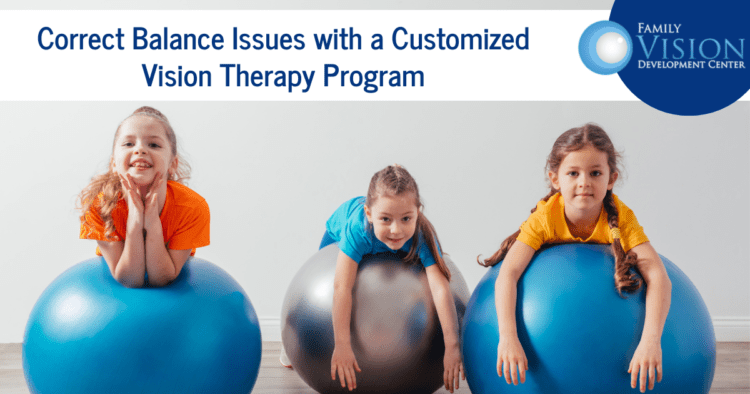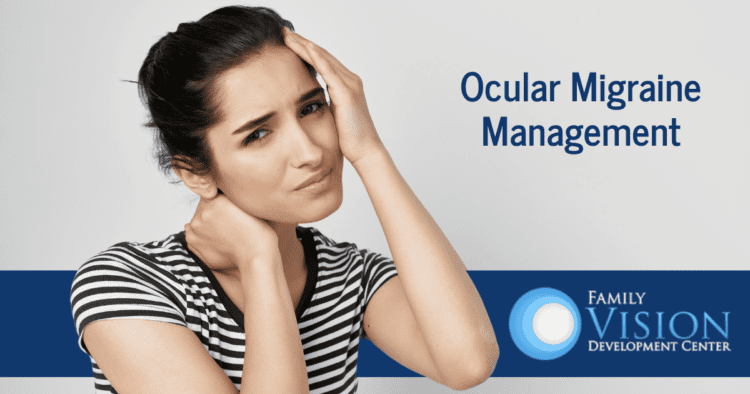Maintaining good balance is crucial for our everyday activities, and you might be surprised to learn that our vision can play a significant role in this. Because a vision disorder can greatly impact balance, it is important to explore the role of vision therapy in restoring proper vision, and how the benefits of a vision therapy program can contribute to your overall well-being.
Understanding the Link between Vision and Balance
Vision and balance are closely intertwined. Our visual system provides essential cues that help us maintain equilibrium. It enables us to perceive our surroundings accurately, judge distances, and orient ourselves in space. When our visual system is compromised, it can lead to dizziness and an increased risk of falls. Conditions such as strabismus, amblyopia, and visual processing disorders can impact visual perception, leading to difficulties in maintaining balance.
How Vision Therapy Can Help
Vision therapy is a non-invasive and effective treatment option for improving visual skills. By targeting the specific visual deficiencies causing balance problems, vision therapy aims to strengthen the connection between the eyes, brain, and body. Through a series of customized exercises and activities, vision therapy helps individuals develop better eye coordination, eye tracking, depth perception, and spatial awareness. These improvements have a direct positive impact on stability.
The Benefits of Vision Therapy for Balance
Engaging in vision therapy can provide several benefits for individuals struggling with balance issues. Improved visual skills allow for more accurate perception of the environment, reducing the risk of falls and injuries. Vision therapy also enhances overall body coordination, helping individuals maintain stability during various physical activities. By targeting and treating the root cause of visual deficiencies, vision therapy promotes long-term improvements in balance, leading to increased confidence and independence in daily life.
Family Vision Development Center has the Right Vision Therapy Program
When considering vision therapy for balance improvement, it’s important to work with a qualified optometrist or vision care specialist. The team at Family Vision Development Center has advanced training in a variety of vision therapy techniques in order to treat a range of vision disorders. Because balance issues can be a result of many different vision conditions, we evaluate each patient through a comprehensive vision exam. Once your diagnosis has been determined, we will tailor a custom vision therapy program to your specific needs.
Don’t underestimate the impact of vision on your overall well-being. Vision therapy offers a solution to address visual deficiencies, improve balance, and reduce the risk of falls. If you or a loved one are experiencing these types of issues, contact Family Vision Development Center at 630-862-2020 to learn more about our vision therapy options or to schedule your appointment.
Family Vision Development Center is a full-service vision center offering innovative vision therapy services, post-concussive vision rehabilitation, comprehensive vision exams for eyeglasses and contact lenses, management of ocular diseases including glaucoma, diabetes, macular degeneration and cataracts, and a state-of-the-art optical center offering the latest designs in eyewear.
An ocular migraine is a unique type of migraine that affects the vision. It is characterized by a sudden onset of a visual distortion, such as flashing lights, zigzag lines, or blind spots, in one or both eyes. These visual disturbances usually last for 10 to 30 minutes, and they are often followed by a headache.
Experts don’t always agree on the exact cause of ocular migraines. But they are typically thought to be caused by a temporary disruption of blood flow to the brain. They tend to be more common in women than men, and they usually begin to appear while people are in their 20s or 30s.
Because of its effect on vision, an ocular migraine can be a very disruptive condition. But with proper precautions and care, most people can manage their symptoms relatively well. However, it is important to note that the symptoms of an ocular migraine can often mimic those of other, more serious conditions. Therefore, you should always consult with your eye doctor any time you experience a change in vision.
Ocular Migraine Symptoms
The symptoms of an ocular migraine can vary from person to person. Some people may only experience mild visual disturbances, while others may have more severe symptoms, along with a headache. The most common symptoms include:
- Flashing lights or zigzag lines in the vision
- Blind spots
- Blurred vision
- Double vision
- Sensitivity to light and noise
- Nausea and vomiting
- Headache
The visual disturbances typically last for 10 to 30 minutes, but they can sometimes last for up to an hour. The headache, if present, usually begins after the visual disturbances and can last for several hours or even days. Again, if you experience any of the symptoms of an ocular migraine, it is important to see a doctor to get a proper diagnosis and treatment.
Ocular Migraine Management
Unfortunately, there is no surefire way to completely prevent an ocular migraine from occurring. In other words, there is no “cure” at this time. However, there are some things that can help reduce the frequency and severity of attacks. These can include:
- Avoiding triggers: Some people find that certain things, such as stress, lack of sleep, or certain foods, can trigger an ocular migraine. Paying attention to these triggers, and doing your best to avoid them, can help to reduce the risk of attacks.
- Migraine medications: typical over-the-counter medications such as acetaminophen, ibuprofen or naproxen are often enough to alleviate symptoms. More serious cases can be handled with prescription medications.
- Making lifestyle changes: Certain activities can increase the chance of an ocular migraine occurring. Therefore, certain lifestyle changes can help reduce the number or severity of episodes:
- Drink plenty of fluids to prevent dehydration
- Cut down on salty foods
- Avoid too much alcohol or caffeine
Visit Family Vision Development Center for Total Vision Care
At Family Vision Development Center, our philosophy of whole body wellness extends beyond the eyes. Our one-on-one approach provides personalized care and individualized treatment options to maintain healthy vision for life. Visit us for regular vision exams in order to properly track any changes in vision. And contact us immediately if you ever have any vision concerns. Our professional team is here to help at 630-862-2020!
Family Vision Development Center is a full-service vision center offering innovative vision therapy services, post-concussive vision rehabilitation, comprehensive vision exams for eyeglasses and contact lenses, management of ocular diseases including glaucoma, diabetes, macular degeneration and cataracts, and a state-of-the-art optical center offering the latest designs in eyewear. We are dedicated to keeping our patients comfortable and well-informed and we will explain every exam and procedure and answer all of your questions. We accept both scheduled and emergency appointments, and offer convenient financing and insurance options to ensure that high-quality vision care is available and affordable to all of our patients.



